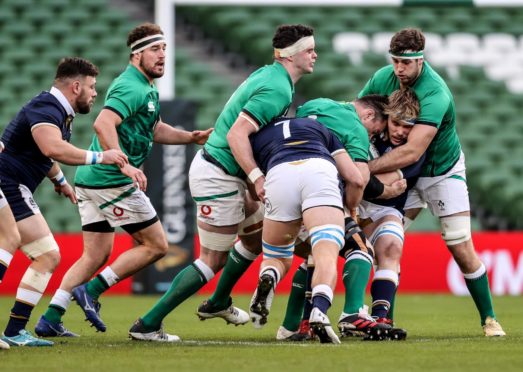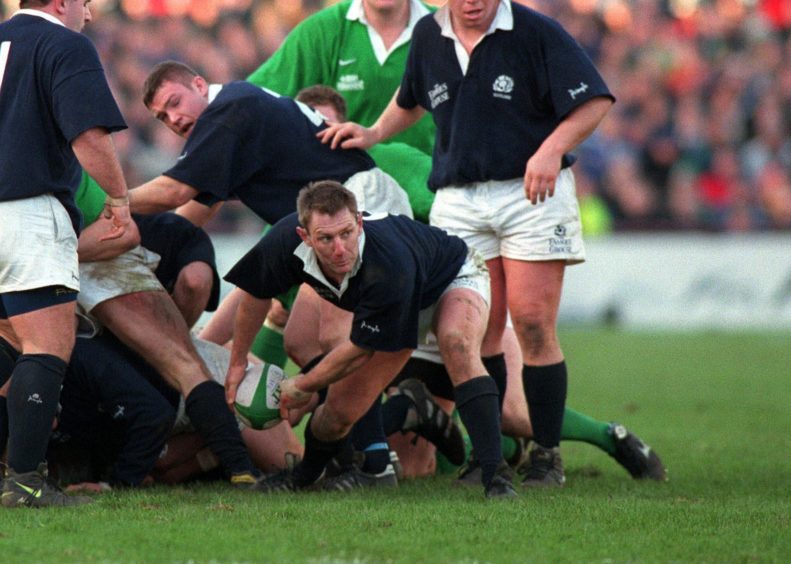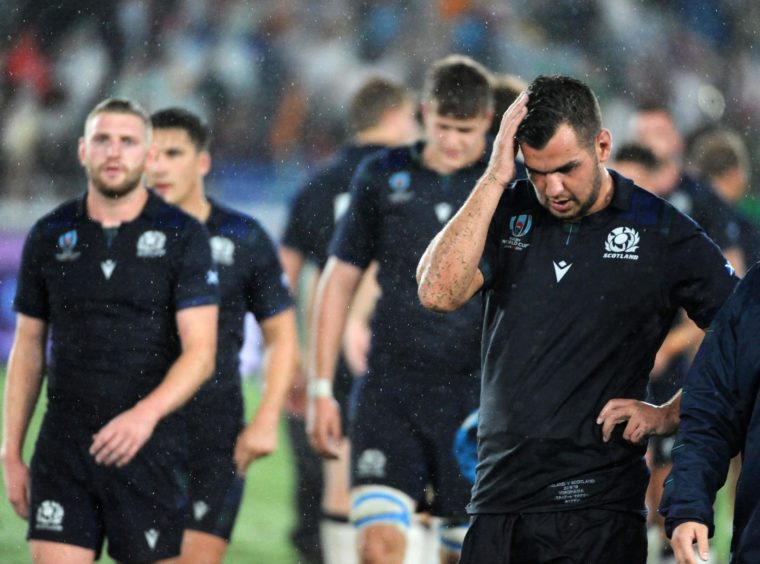There was a time when the boot was on the other foot between Scotland and Ireland.
Not to turn 180 degrees from my general distaste at lockdown nostalgia, but some of us remember when our annual fixture with the Irish was a sure thing.
When I started this job, it certainly was. Scotland were in the midst of a 12-match unbeaten streak against the Irish. Even in 1997, when they weren’t good enough to win against anyone else, the Scots trounced Ireland 38-10.
It was almost like playing Italy. Nowadays, however, that’s what Ireland feel about Scotland.
‘It’s just Scotland’
“It’s just Scotland” was what I heard from Irish voices prior to last year’s Six Nations opener. After the Autumn Nations Cup meeting in November former Ireland head coach Eddie O’Sullivan lambasted the Scots for their “delusion” that they could compete with the Irish.
Quite what Eddie wanted them to do (kneel? genuflect?) I’m not quite sure, but he got quite irate.
But such hubris is, at the moment, justified. Ireland have Scotland’s number under heavy guard.
Apart from 2007 and 2017, the famous win at Croke Park in 2010, an outrageous fluke in 2013 and a World Cup warm up game nobody in their right mind counts, Ireland have won 21 times against Scotland this century.
Most of this was Ireland’s “golden generation” – O’Driscoll, O’Connell, Wood, Wallace, O’Gara and the rest. For the last few years Ireland haven’t really been man-for-man that much better than Scotland, but they still win. In Yokohama, during the World Cup, it was utterly and humiliatingly comprehensive.
Physicality the difference?
Why does this happen? Listen to Irish commentators and they’ll opine that Ireland’s physical game overwhelms Scotland more often than not. Perhaps there’s a point there, but Scotland haven’t flinched recently against France and England, who are probably stronger there – certainly enough to handle Ireland regularly of late.
Let’s look at the two games in 2020 between the sides, both in Dublin. In February, Scotland were easily the equal of Ireland physically, and the difference between the sides was Stuart Hogg’s dropped ball over the line.
In November, Scotland were toe-to-toe for 35 minutes, then the discipline vanished, and Ireland took full advantage in their usual way.
How Ireland score
And by usual way, I mean through territory and setpiece. The Irish website the42.ie did an analysis of Ireland’s 25 tries in 2020, and uncovered that an incredible 84% of them started from setpiece situations in the opposition 22 – 13 from lineouts and eight from scrums.
Compare this with Scotland, who scored 20 tries in 2020. 10 of them were from setpiece in the opposition 22, all lineouts, but five were in the October warm-up against Georgia. Scotland scored nine times from outside the 22, a reasonable rate, including five where the move started in their own half.
Ireland scored only four times from outside the redzone. It shows pretty clearly that if you keep Ireland out of your 22 (not easily done, admittedly) they have trouble scoring. Once they are in there, they’re pretty much impossible to stop.
November’s game was close until Scotland started giving away penalties which allowed Jonny Sexton to kick the line into the 22 and allow the pack to do their usual drills.
The penalty count that day was 15-8 against Scotland, and Gregor Townsend made discipline a key focus over the winter. At Twickenham, the Scots were excellent in this regard, and as a result England barely entered their 22.
It’s not only how many, it’s where and when
The narrative from the Wales defeat – which I wholeheartedly endorsed at the time – was that discipline had gone awry again. Putting aside the effects of the Zander Fagerson red card, Scotland actually WON the penalty count 13-11 that day – Alun Wyn Jones was pinged four times in the game.
The problem was that they gave away penalties in batches and in the wrong areas. A series of three quick offences, beginning with a penalty when driving a maul five yards from the Welsh line, just before half-time eventually resulted Louis Rees-Zammit’s first try – it was actually four offences but Wales scored with a penalty advantage.
Scotland went from a potential 24-3 lead at half-time to 17-8 instead. Wales had a foothold into the game they wouldn’t otherwise have had. Even the red card wouldn’t have mattered from 19 points ahead, one would have hoped.
Against Ireland, this situational discipline is even more crucial. Scotland’s maul defence was badly exposed by Wales, and Ireland’s maul is their house speciality.
As the stats show, they are usually fantastically efficient at turning these situations into seven points. Well, with Sexton and Conor Murray there, at least.
Scots under pressure at the maul
Any penalty conceded from their opposition 10-metre line on Sunday is likely to put the Scots under pressure.
If I were Ireland, after Scotland’s maul against Wales, I wouldn’t be going for the posts very often. I’d be mauling lineouts from near halfway as well. Scotland forwards coach John Dalziel needs to have earned his corn on the training pitch this last couple of weeks.
Ireland can be beaten this Sunday. But if Scotland are to win, they have to stop surrendering scoring opportunities like in Dublin and Murrayfield last month. Because if they don’t, Ireland will win comfortably again.




